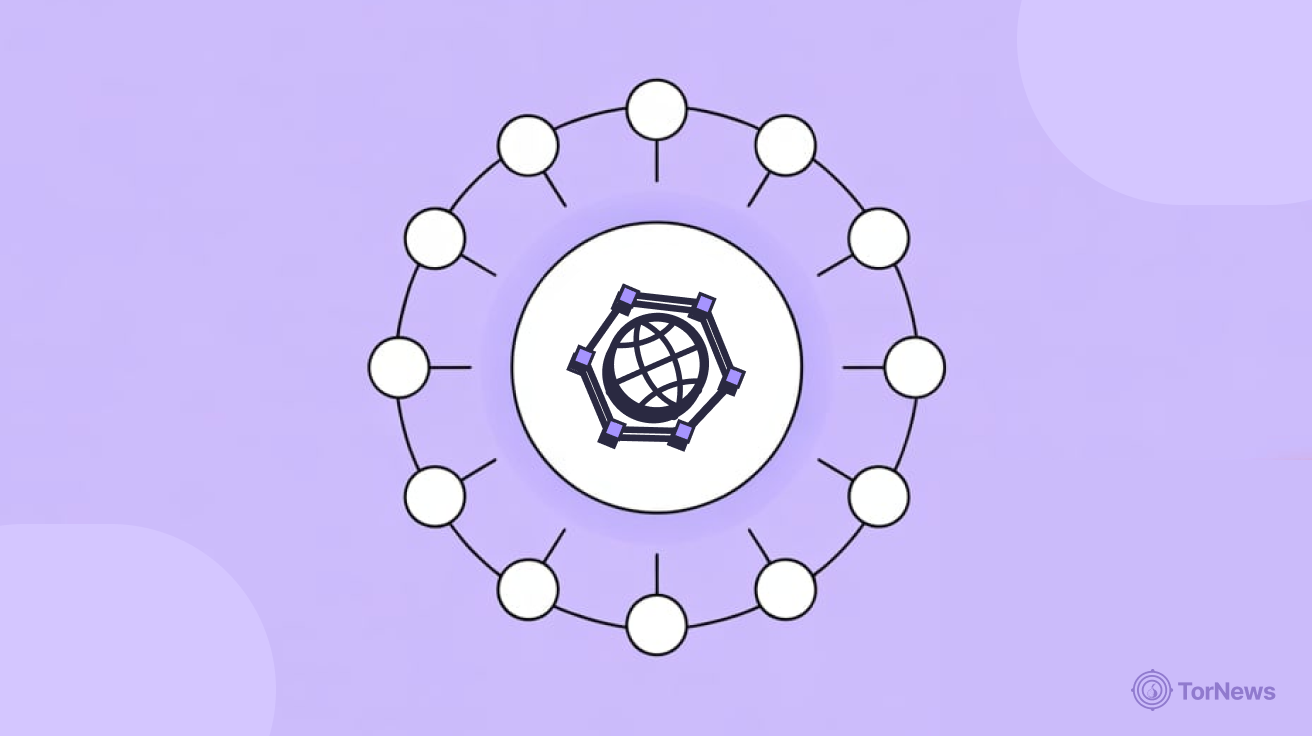The dark web often carries a mix of fear, curiosity, and mystery. Mind you, it’s not a single secret spot but a collection of different websites for which you need special tools like Tor to access (as it provides the necessary security and anonymity). From legitimate privacy-focused services to illicit markets, you can find all types of websites on the dark web. These platforms are invisible to standard search engines like Google. While it has a reputation for illegal activities, not every onion website or dark web site is illicit.
Nevertheless, many of these sites are unstable, frequently changing addresses or vanishing suddenly, making it harder to separate reliable, working resources from dangerous ones.
For anyone understanding the dark web, exploring its active resources is key. In this article, we’ll explore the best dark web sites worth visiting in 2026, including marketplaces, secure email services, forums and communities, security and privacy tools, search engines, and more.
Important Note and Word of Caution:
This article is for research and educational purposes only (as is the case with every page on TorNews.com). Dark net is dangerous (it’s hidden from everyday internet users so that tells it all). When visiting darknet sites, you should take proper precautions to protect your security and privacy. This means using VPN (only a quality VPN service such as NordVPN) to encrypt your connection, an antivirus software of your choice, and avoiding sharing personal details on top of only using an anonymous browser like The Onion Router browser that’s must to access an onion site.
Additionally, while accessing the dark web is legal in most countries (the United Kingdom, the United States, India, Australia, Canada, and most of Europe), engaging in illegal activities is illegal everywhere. Although the dark web may seem anonymous, law enforcement agencies actively monitor it, and accessing certain websites or taking part in illegal activities can lead to criminal charges.
Top Dark Web Sites to Visit – Quick List
- DuckDuckGo: Take the privacy-first search engine you know and love, and give it additional privacy upgrade. DuckDuckGo’s .onion version doesn’t track your searches or log your activity.
- OnionWiki: Your unofficial starting point for exploring the dark web. It’s a massive directory of .onion links, but browse with caution—many links are outdated or could lead to unsafe places.
- Awazon Market: Often called the “Amazon of the dark web,” this Tor-based marketplace is a hub for trading illicit products and services (mostly) under a veil of strict anonymity.
- OnionFind: You can fire up this reliable search engine when you need to find active .onion sites. It’s one of the most user-friendliest and most trusted search tools on the dark web.
- ProtonMail: Send and receive emails locked with end-to-end encryption. It’s the go-to for anyone who needs serious privacy for their communications.
- Trapify Market: High‑security decentralized dark net marketplace built on privacy-first tech, offering escrow-protected trades with only verified vendors.
- SearX: It is a decentralized metasearch engine that pulls results from multiple sources without profiling you or your searches.
- Riseup: This privacy-centric service provides secure email and chat tools built specifically for activists and organizers who can’t afford surveillance.
- Tor Metrics: Ever wonder how big the Tor network really is? Or maybe how many users use Tor daily? This is the official site for public data on Tor’s usage, performance, and network size.
- Sci-Hub: This dark web repository gives you free access to millions of academic papers and research journals.
- BBC Tor mirror: It offers uncensored global news directly from the BBC, even if you’re in a country that blocks their main website.
- Tenebris: A Q&A community similar to Reddit, focused on anonymous discussions with complete freedom.
- SecMail: A no-frills, encrypted email service designed for Tor users who want to communicate without handing over any personal details.
- The CIA: Yes, the CIA. Their official .onion site lets you share information with the agency securely and anonymously from anywhere in the world.
- Archive.today: This service takes permanent snapshots of web pages, preserving them on the dark web even if the original site gets taken down or censored.
- ProPublica: Investigative journalism site offering anonymous access to its reports.
- ZeroBin: Pastebin that encrypts all content in your browser before sharing.
- Blockchain.info: Dark web crypto wallet and blockchain explorer for anonymous transactions.
- Facebook Onion site: Access your Facebook account through its official .onion address to bypass censorship and hide your login from prying eyes.
- SecureDrop: Whistleblower platform for safely submitting sensitive documents to journalists.
- Imperial Library: Large collection of digital books and research materials available anonymously.
- Wasabi Wallet: Privacy-focused Bitcoin wallet that supports anonymous coin mixing.
- Comic Book library: A hidden treasure trove for fans, offering a huge selection of downloadable digital comics and graphic novels.
- Deep web radio: Streaming service broadcasting music through dark web channels.
- Mailpile: An open-source encrypted email client you can use privately on the dark web.
- Keybase: Secure platform for encrypted messaging and file sharing.
- Elude: An email platform emphasizing privacy and anonymous communication.
- Tunnels: A private chat platform that uses layered encryption to create secure “tunnels” for your conversations, keeping them anonymous.
- Onion.name: Bridge portal that lets you view .onion domains directly from the surface web.
- Dark.fail: Verified directory that tracks legitimate and trustworthy onion links.
- Haystak: Dedicated dark web search tool that combs through its index to provide you with only verified .onion sites, helping you avoid dead ends and scams.
What are Onion Sites?
Usually, dark websites use the .onion domain, and you can only access them through special software like the Tor browser. These sites aren’t available on the clear web via regular search engines like Google; they are indexed by dark web search engines like OnionFind or Torch.
The dark web uses layered encryption and routing to provide stronger anonymity, which attracts whistleblowers, privacy defenders, political dissidents, and cybercriminals alike.
Traffic on the dark web is routed through several non-logging nodes, hiding the user’s identity. You can even connect to Tor using a VPN for added privacy.
Best Dark Websites Today – Detailed List
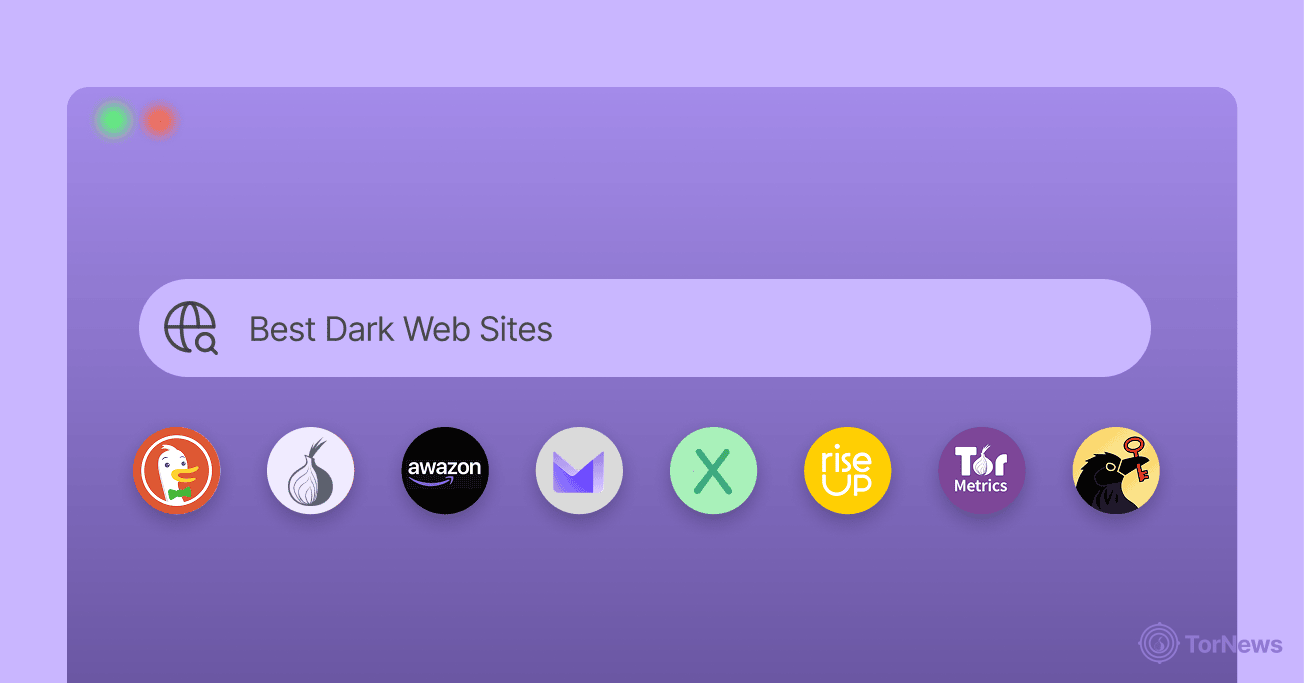
Here are some of the notable, secure onion services you can browse safely (given that you have taken care of the precautionary measures and know what you are doing):
1. DuckDuckGo
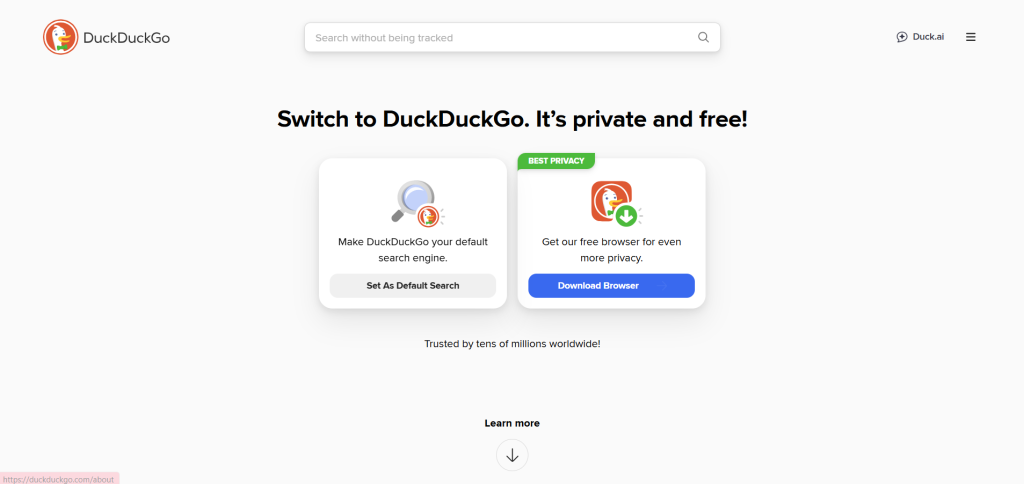
- Direct URL: https://duckduckgogg42xjoc72x3sjasowoarfbgcmvfimaftt6twagswzczad.onion/
DuckDuckGo’s .onion version is a trustworthy entry point into the dark web if you want to browse safely and anonymously. The interface is straightforward with an AI overview for quick assistance (AI is everywhere now, right?). It’s an excellent option if you’re a privacy-conscious person and want unbiased results.
It’s Tor Browser’s default search engine (and among the very best sites on the dark web one can visit). Think of DuckDuckGo’s .onion version as the exact same search engine you already know, just with a privacy boost from the The Onion Router network. The one thing to keep in mind? It won’t magically discover other dark web platforms’ links for you. It shows the same results as its surface web cousin, unless you specifically search for an ‘.onion’ address yourself.”
2. OnionWiki
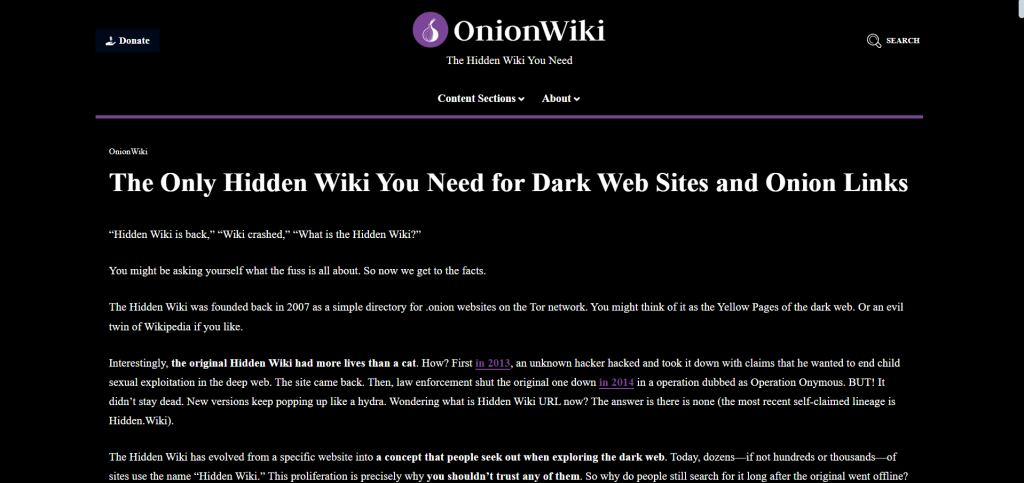
- Direct URL: https://onionwiki.com/
While it’s not an onion website, OnionWiki is the starting point for many users’ journeys into the darker corners of the Internet. As its name suggests, the portal is a directory that lists .onion sites, serving as a basic guide to navigate the dark web. It is built on the idea of “the Hidden Wiki,” which is a vast repository of many of the popular dark websites on the Tor network. Unlike Google, Yahoo, or a darknet search engine, you don’t get to search for a resource, but only see a curated list.
While this simple directory doesn’t collect your data, and promises to always vet its links, the admins may remove or add at their own discretion (mostly without notice to users). Be ready to find a mix of useful resources and dangerous or illegal sites, so always double-check before clicking on anything.
3. Awazon Market
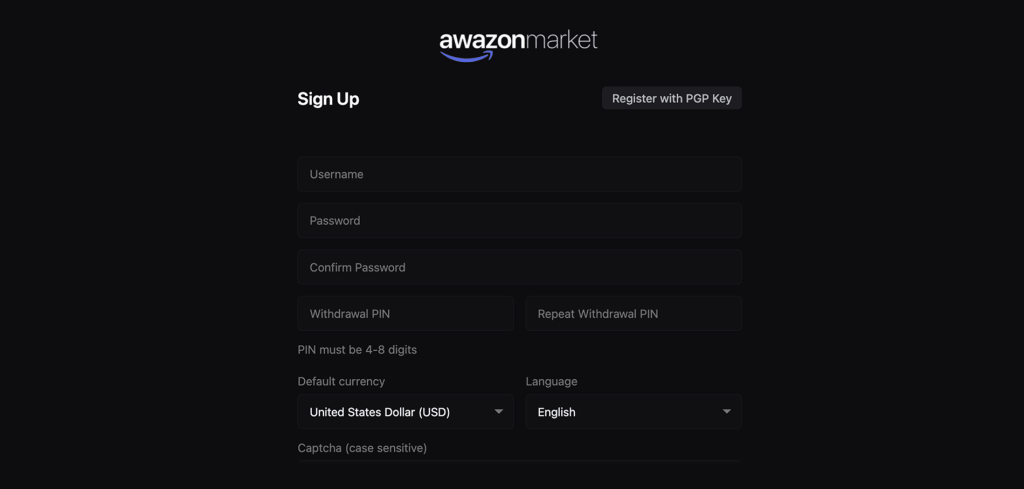
- Direct URL 1: awazone7gyw54yau4vb6gvcac4yhnhcf3dkl3cpfxkywqstrgyroliid.onion/auth/register_now
- Direct URL 2: awazonevlc63543fjvtli35bk2iopdyyaaytkmmiop5avny6b24uljqd.onion/auth/register_now
If you’ve heard of one dark web marketplace, there’s a good chance it’s Awazon. Think of it as a shady, underground version of Amazon (hence the name resemblance kept by the operators, it seems). Here, under the cover of Tor and cryptocurrency, almost any illegal item imaginable is up for sale on the dark web. From fake IDs and stolen credit card info to drugs and hacking tools, users buy and sell everything, all while hiding their identities.
Once you log in, you will notice it has a weirdly professional layout. That’s rare on such marketplaces. The market has vendor ratings, escrow services to hold payments, and even a system to resolve disputes (it’s like cybercriminals having a big boss who steps in if something goes wrong between them). It’s structured so much like a normal e-commerce site that it’s earned the nickname “the Amazon of the dark web.” It’s an AI era, right? They’ve even added an AI assistant you can ask for help navigating the site or checking out different vendors.
But don’t let the slick interface fool you. Like another underground market, this is still a dangerous hub for criminal activity. Police and federal agencies around the world are constantly watching markets like Awazon. Every time you log in, you’re risking scams, having your own data stolen, or facing serious criminal charges.
And here’s the biggest catch with all dark web markets: they can vanish in an instant. This encapsulates the volatile dangers of the dark web: exit scams, law enforcement takedowns, and sudden exposure to malware or surveillance. Awazon might be popular today, but it could be gone tomorrow. You never know when the police shut it down with a raid, or it is taken offline by a major hack, leaving everyone who used it high and dry.
4. OnionFind
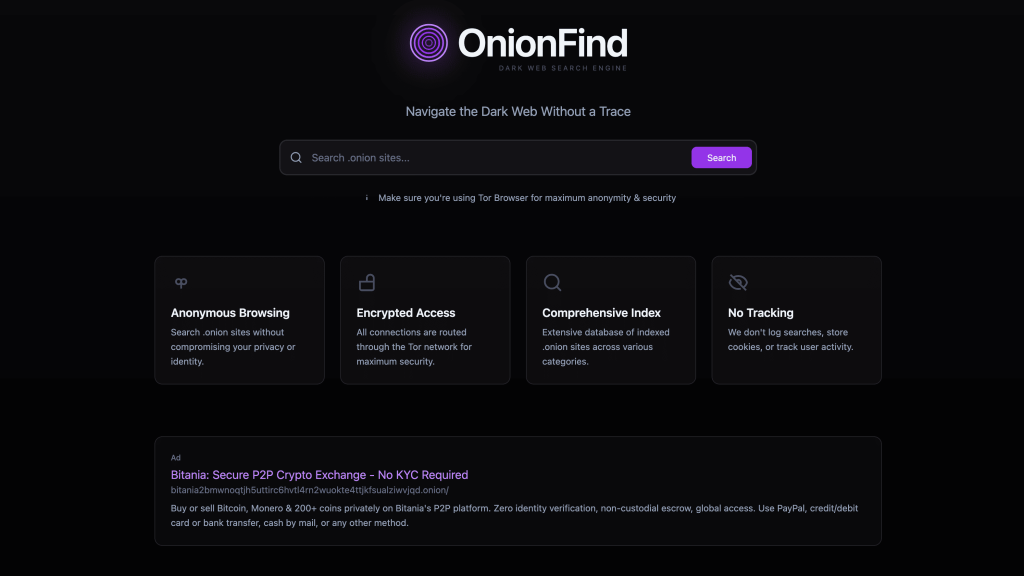
- Direct URL: http://ofinde3b67voi7xiq3qflof2mwriwngicd7glwvf3bclgdgcjfozlzqd.onion/
OnionFind is a trustworthy dark web search engine that allows users to find hidden services easily. While results can include duplicates or inactive links, it is still a useful tool for finding active onion sites without exposing your identity.
Unlike DuckDuckGo’s onion version, OnionFind provides only .onion search results. You can access it either through its clearnet domain, OnionFind.com, or directly via the Tor browser.
5. ProtonMail
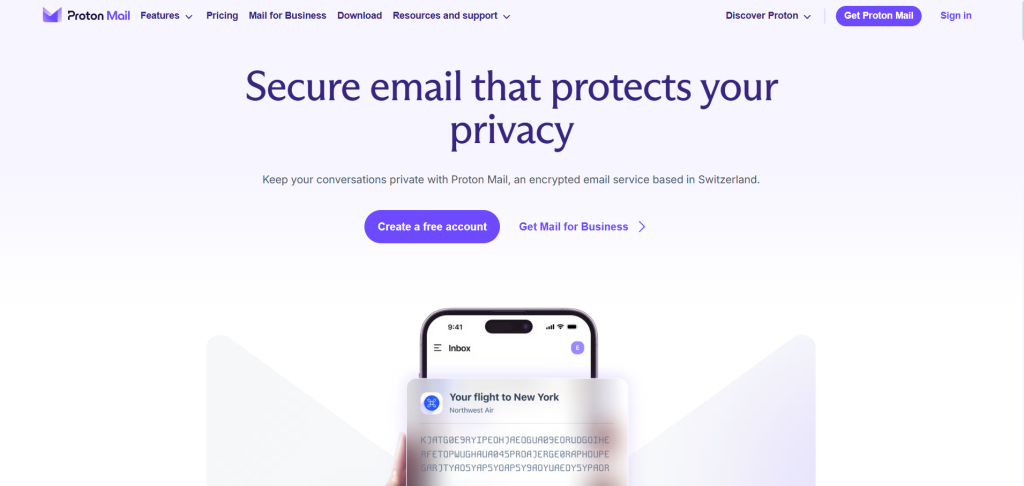
- Direct URL: http://protonmailrmez3lotccipshtkleegetolb73fuirgj7r4o4vfu7ozyd.onion/
ProtonMail’s onion site offers secure communications with end-to-end encryption. Switching to ProtonMail’s .onion address does two key things for you. First, it bypasses censorship, giving you access where the standard site is blocked. Second, it layers ProtonMail’s own end-to-end encryption with the full anonymity of Tor.
This double shield makes it incredibly difficult to trace your connection’s origin, offering vital protection for your identity and sensitive communications. However, nevertheless, an anonymous email service can’t protect you against threats like email spoofing or social engineering. So, you should still use strong passwords and two-factor authentication (2FA) to protect your accounts even when using Proton Mail on Tor.
6. Trapify Market
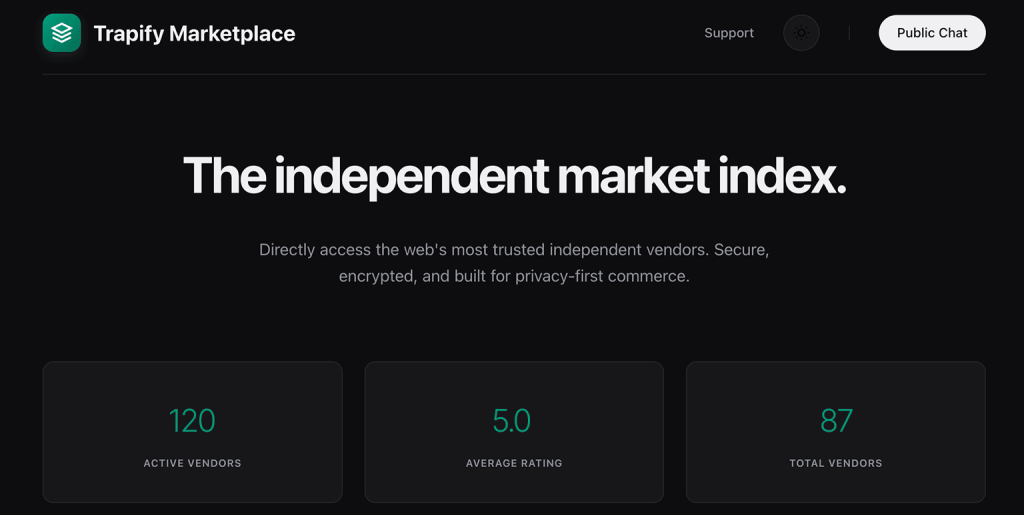
- Direct URL: http://trapify.dweb3.me
Trapify, a relatively new platform, is an underground marketplace. Unlike most of the other dark web sites listed in this article, it’s accessible through the clearnet. While it’s a decentralized platform built for privacy-first commerce, visiting it via The Onion Router browser is still recommended for maximum anonymity online. Users can find many kinds of products here (actually vendors), including both legal as well as illegal items.
From vintage products, specialized equipment like electronics, to drugs and counterfeit products, Atlas features products for people of all different interests.
The market verifies its vendors before they can sell. Plus, there’s a robust Escrow system to ensure payments are made in a secure way.
7. Searx
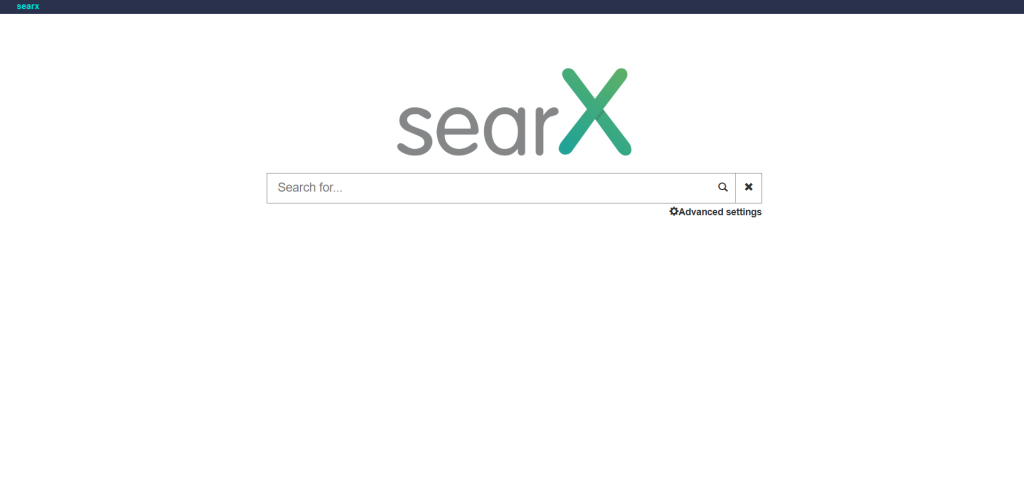
- Direct URL: http://ulrn6sryqaifefld.onion/
SearX is a privacy-conscious metasearch engine that is available on both the clear and dark web. It blocks tracking cookies to prevent personalized or biased search results. Moreover, the dark net search engine sends your search queries via HTTPS POST to prevent the servers from logging your data.
8. Riseup
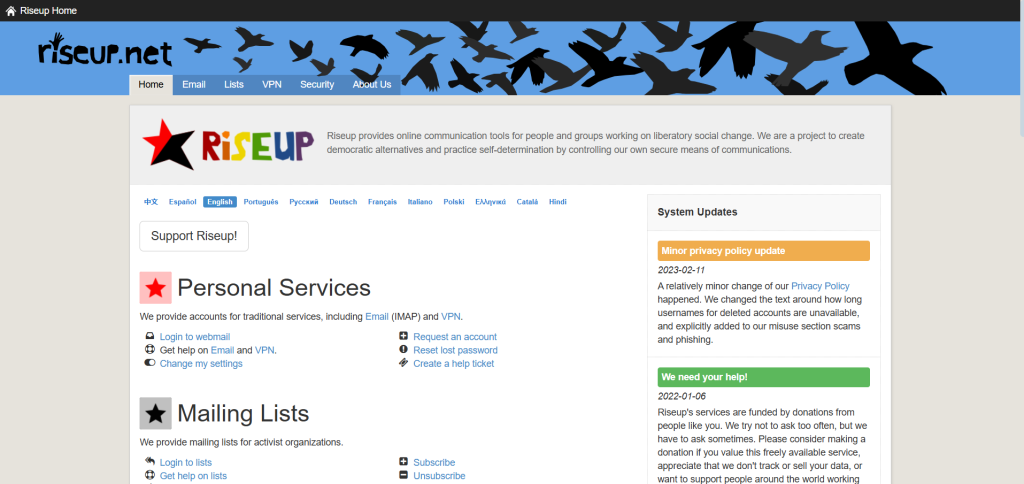
- Direct URL: http://vww6ybal4bd7szmgncyruucpgfkqahzddi37ktceo3ah7ngmcopnpyyd.onion/en
Riseup is a Tor-based privacy-focused communication service run by activists. It offers secure emails, chat, and mailing lists for people working on social and political causes. The dark web version allows users to access these services anonymously. Understandably, users who do not want to rely on a corporate email provider for the confidentiality of their sensitive email communications love it.
9. Tor Metrics
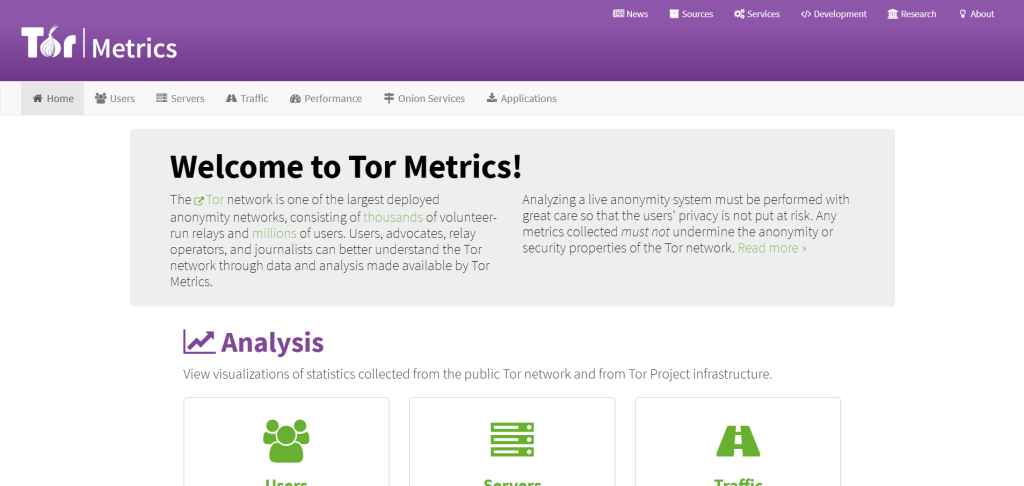
- Direct URL: http://hctxrvjzfpvmzh2jllqhgvvkoepxb4kfzdjm6h7egcwlumggtktiftid.onion/
Tor Metrics is the official site that tracks and publishes statistics about the Tor network (as the name hints). It provides data on user numbers, relay performance, and traffic trends.
Researchers and privacy advocates use it to study Tor usage and detect changes that might indicate censorship or surveillance attempts.
10. Sci-Hub
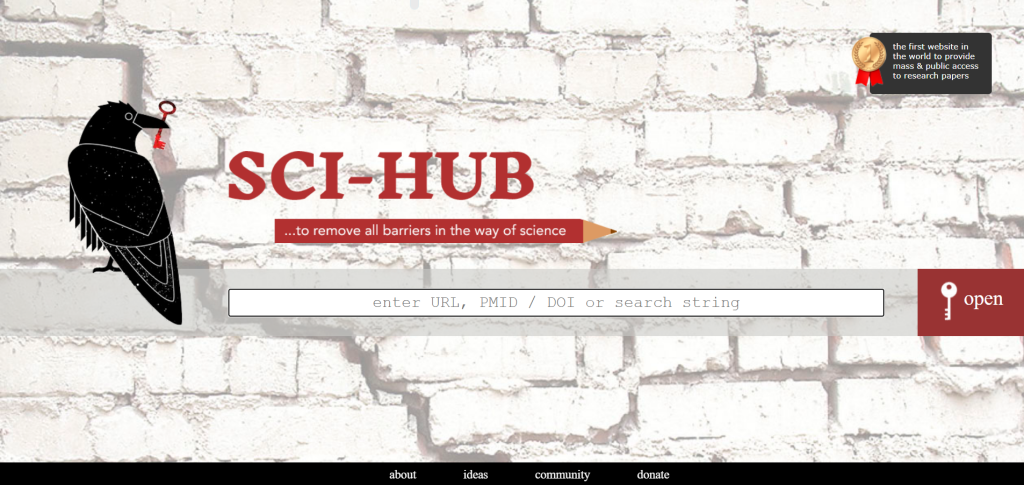
- Direct URL: http://scihub22266oqcxt.onion/
Sci-Hub gives free access to millions of academic papers that are usually locked behind paywalls and not freely available on the surface web. It’s popular among students, researchers, and independent scholars. While it has a clearnet version at https://sci-hub.st, the dark web version helps users in censored countries access the platform and download research material privately.
11. BBC Tor mirror

- Direct URL: http://bbcnewsv2vjtpsuy.onion/
The operational business division of the British Broadcasting Corporation (BBC) launched its Tor version in 2019 to fight censorship attempts. The BBC Tor mirror is a secure version of the official BBC News website that runs on the Tor network. It gives people in countries with strict censorship access to all the BBC News content.
The site looks and functions like a normal page on the surface web, but encrypts connections to protect users’ identities.
12. Tenebris
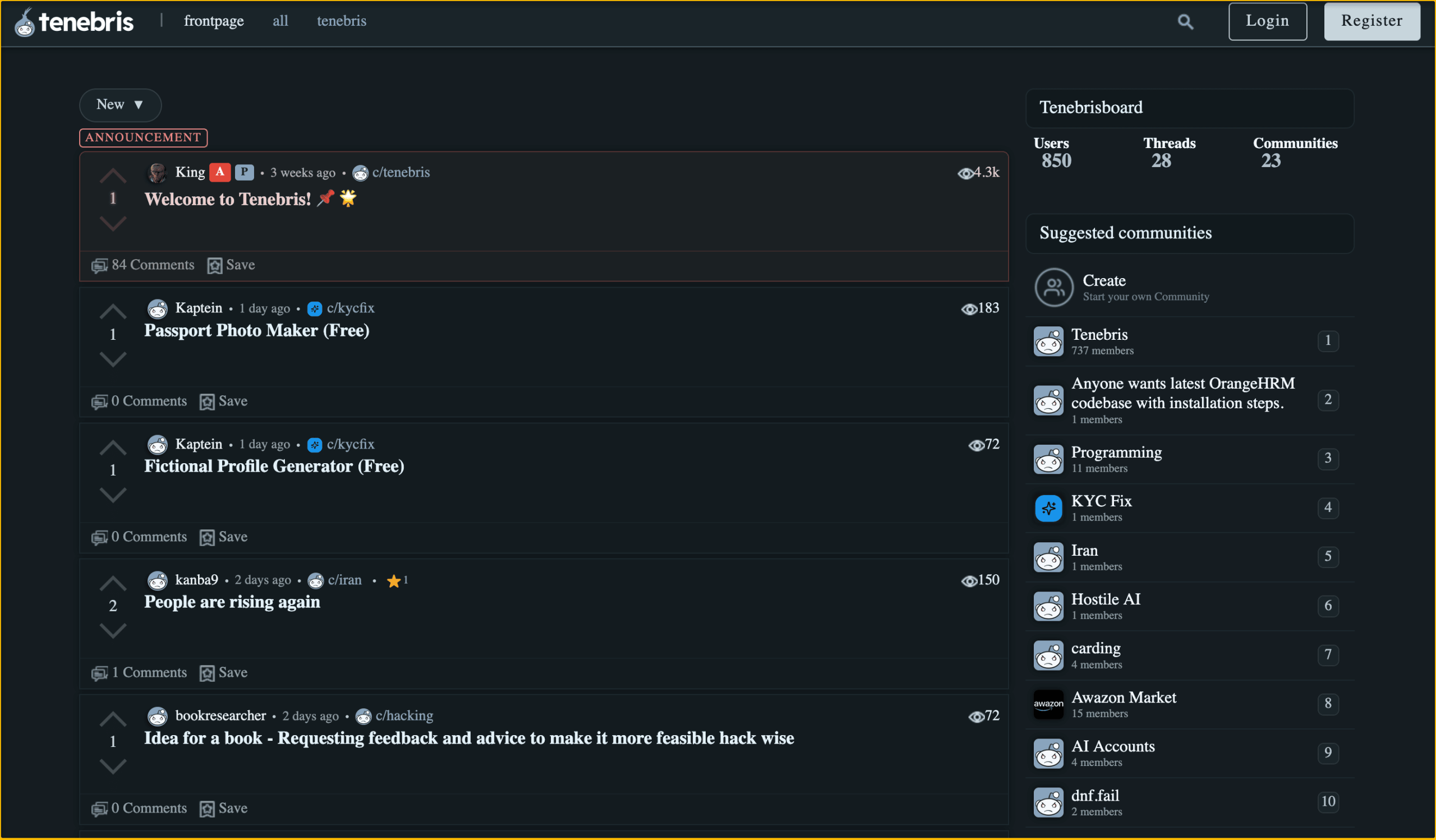
- Direct URL: http://tenebrispoyfrcup4k24lciwrh4gc5735hmld4dweq7his7zh423opqd.onion/
Tenebris is among the key players in the dark web forum ecosystem. It has quickly become popular among users for several reasons. One of which is the decline of other older darknet discussion boards (many aren’t working today). The platform seemingly took advantage and filled in the gap perfectly.
Tenebris is just like a central meeting point for darknet users. Here, people exchange their thoughts on various topics, such as law enforcement movements, underground internet culture, etc. Many also discuss the dark web markets and their vendors, and on top of them, some communities circulate warnings about scams, arrests, or major shutdowns.
Just like Reddit’s subreddits, every discussion is divided into its sub-categories (dubbed as communities on Tenebris) and is moderated by admins.
Tenebris has a clean interface and professional presentation. But, you can’t be sure about the platform’s safety (like all other items and resources found on the dark web). Note that forums like this are a hub to carry out illegal operations and are often used to discuss and plan criminal activities.
Tenebris also hosts groups that discuss topics related to cybersecurity threats and privacy tools, which might portray its image as a valuable source of threat intelligence. But, here’s the deal. Its growing popularity goes both ways. As user numbers increase, Tenebris becomes more attractive to cybercriminals.
13. SecMail
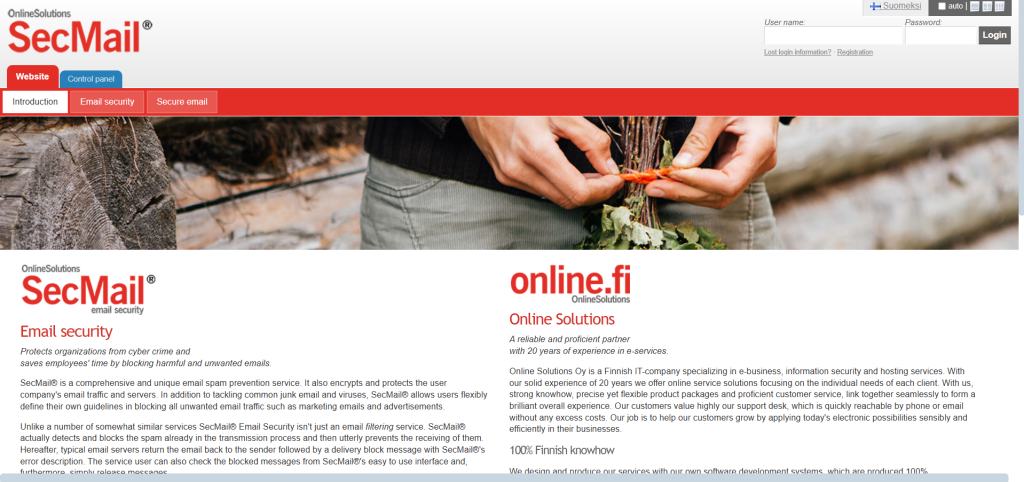
- Direct URL: http://secmailw453j7piv.onion/
SecMail is an encrypted email service on the dark web that allows users to send and receive messages anonymously. It’s a good choice if you want to stay anonymous and keep your IP address private, as users don’t need to share any personal information to sign up.
14. The CIA

- Direct URL: http://ciadotgov4sjwlzihbbgxnqg3xiyrg7so2r2o3lt5wz5ypk4sxyjstad.onion/
Yes, the CIA maintains an official presence on the dark web via the Tor network. The CIA’s official dark web site allows people worldwide to share information securely and anonymously with the agency. It helps individuals living under restrictive regimes or sensitive situations to contact the CIA without exposing their identities.
15. Archive.today
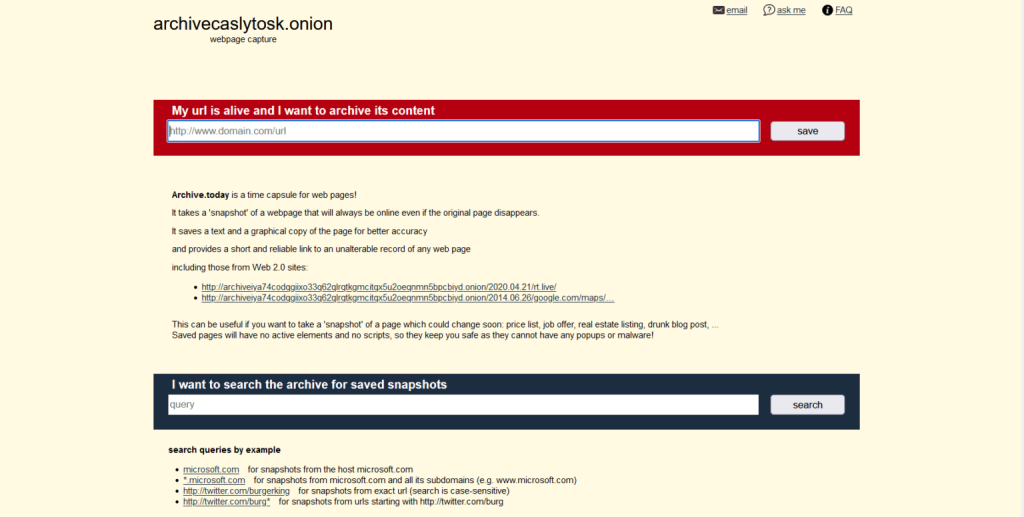
- Direct URL: http://archivecaslytosk.onion/
Think of it as the WayBackMachine of the dark web. This snapshot-based archiving service saves web pages permanently, even if the original site goes offline or gets censored.
The dark web version provides access to saved pages anonymously, which helps preserve information that might be restricted or deleted on the surface web. As per reports, the FBI is now subpoenaing the web domain registrar, demanding information that could unmask the snapshotting site’s mysterious owner.
16. ProPublica

- Direct URL: https://www.propub3r6espa33w.onion
ProPublica is a dark web investigative news outlet that offers readers in censored countries access to various stories anonymously.
This is one of the safest sites to visit on the dark web as it doesn’t host or link to illegal content or activities. It mainly publishes investigative stories and exposes wrongdoing by those in power.
17. ZeroBin
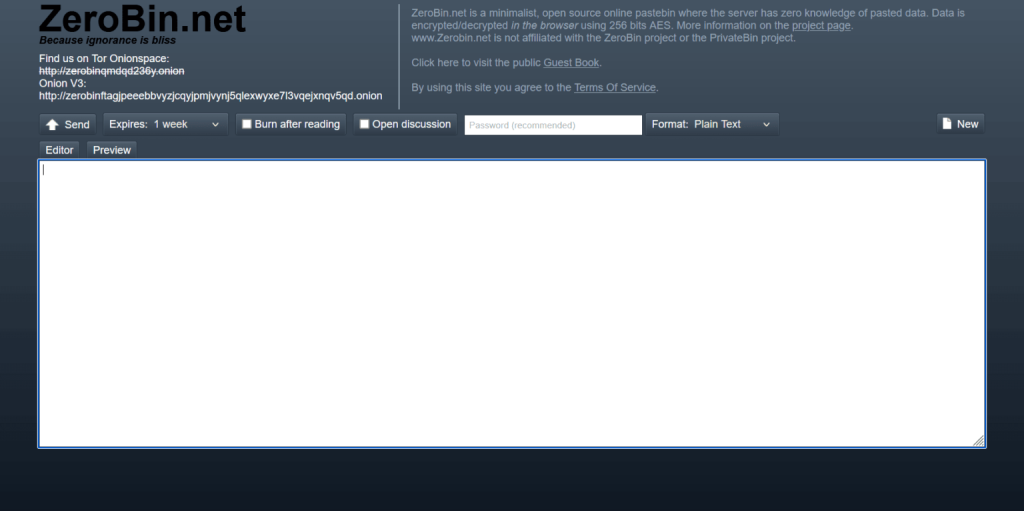
- Direct URL: http://zerobinqmdqd236y.onion/
ZeroBin is a popular tool for use on the dark web, designed for sharing text or code snippets anonymously. It encrypts all the traffic before uploading it to prevent the servers from reading the data. Dark web users mostly use this tool to share sensitive information or messages privately.
18. Blockchain.info
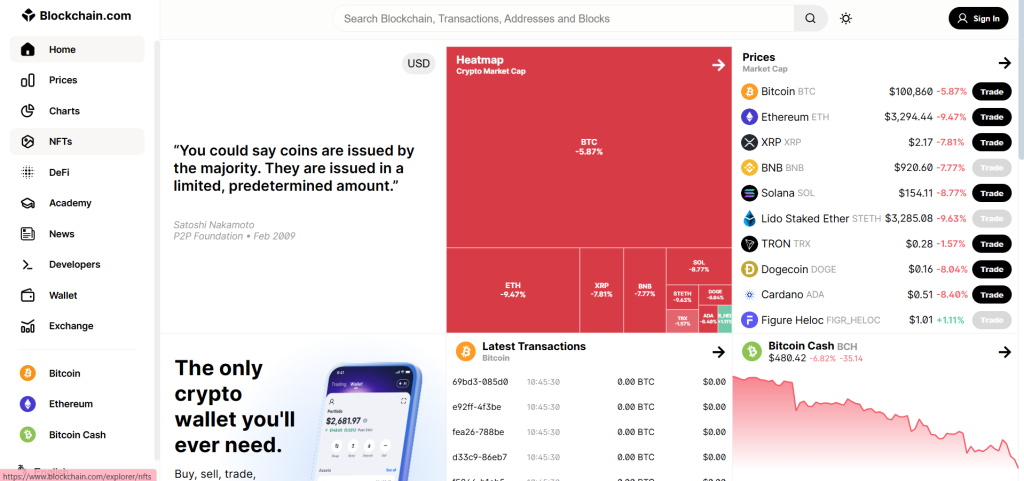
- Direct URL: blockchainbdgpzk.onion
Blockchain.info’s onion site allows users to manage Bitcoin wallets and view blockchain data securely. The onion version Blockchain.info offers the same services as the surface web version (but with extra privacy). It’s useful for people who want to check transactions or access their crypto accounts privately.
19. Facebook Onion site
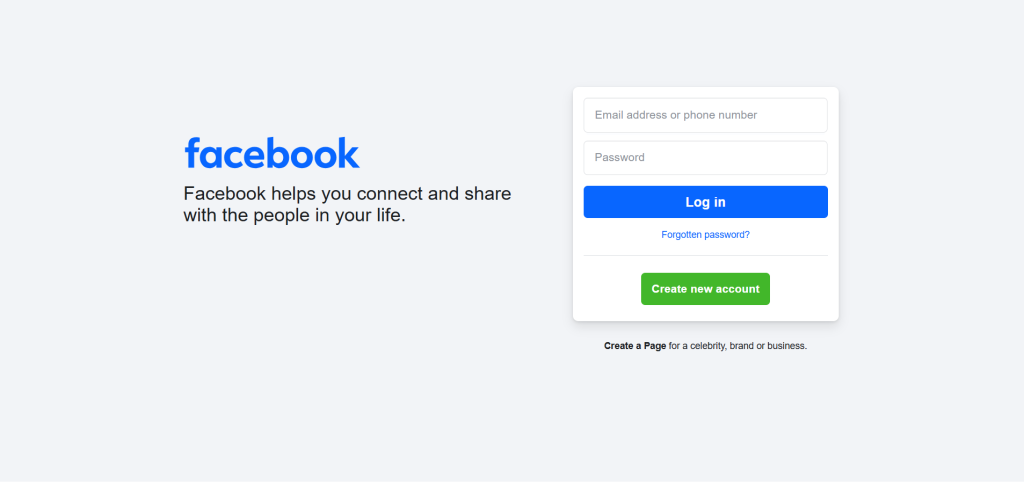
- Direct URL: https://www.facebookcorewwwi.onion/
Facebook’s dark web site is similar to the regular Facebook that we all know about. The only difference (like in the case of other popular clearnet sites on the dark net, such as the BBC News) is that the onion version encrypts connections through Tor. That enables people in censored countries to access the platform’s features freely and anonymously.
20. SecureDrop
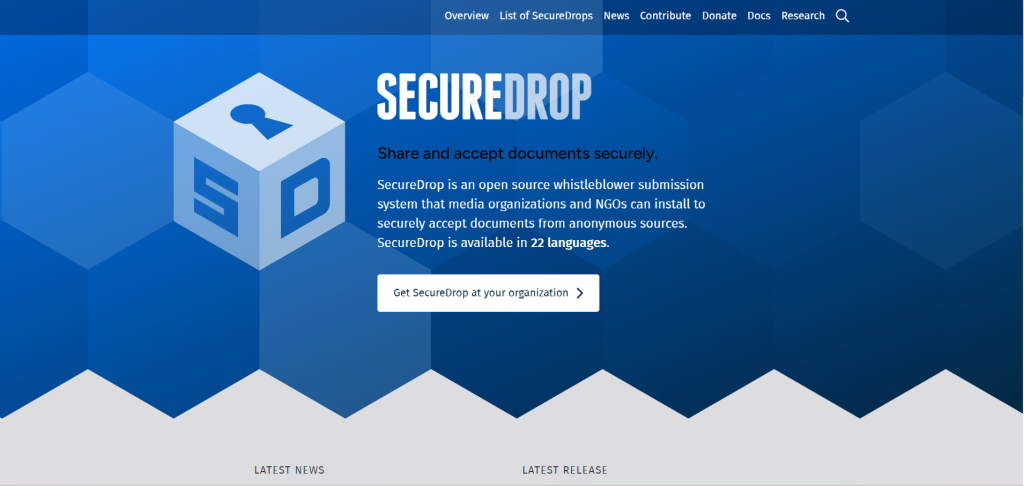
- Direct URL: http://sdolvtfhatvsysc6l34d65ymdwxcujausv7k5jk4cy5ttzhjoi6fzvyd.onion/
Think of SecureDrop as a digital tip line, but with maximum security. It’s an open-source system that lets journalists and news organizations receive documents from whistleblowers completely anonymously, cutting out the middleman and leaving virtually no digital breadcrumbs. The late internet activist Aaron Swartz, together with Kevin Poulsen and James Dolan, originally designed and developed the system, launching it under the name DeadDrop. Though anyone can use it, it’s designed for sensitive exchanges, not casual file sharing or storage.
21. Imperial Library

- Direct URL: http://xfmro77i3lixucja.onion/
The Imperial Library hosts thousands of digital books, research papers, and documents, giving you free access to academic or rare materials. The site’s database covers many topics from science to fiction and is maintained by volunteers.
22. Wasabi Wallet
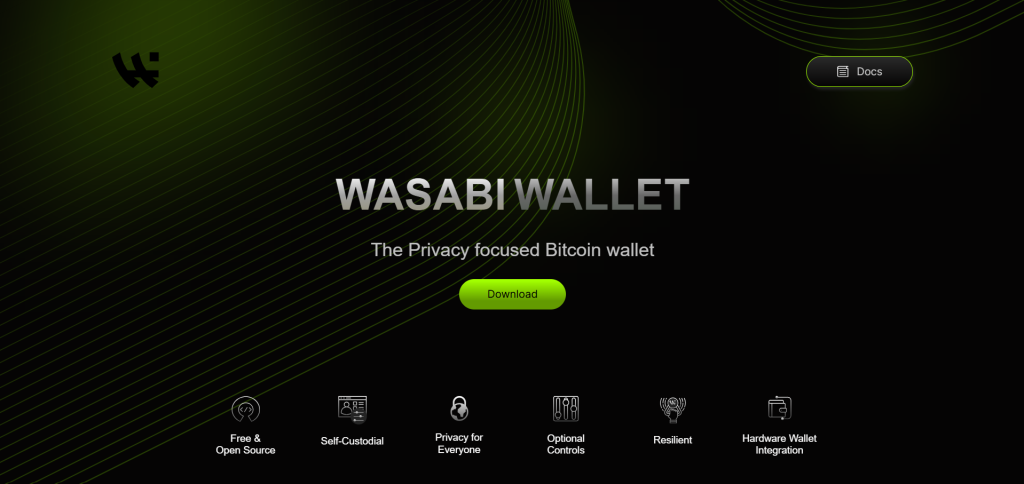
- Direct URL: http://wasabiukrxmkdgve5kynjztuovbg43uxcbcxn6y2okcrsg7gb6jdmbad.onion
Wasabi Wallet is a privacy-focused Bitcoin wallet that obscures transaction history through coin mixing. The dark web version offers an added layer of anonymity for people managing cryptocurrency and trying to avoid tracking or surveillance.
23. Comic Book Library

- Direct URL: http://r6rfy5zlifbsiiym.onion/
Comic Book Library offers a wide selection of digital comic books from various publishers and genres. The site has an anonymous configuration to protect users’ privacy and keep browsing and downloads untraceable.
24. Deep Web Radio
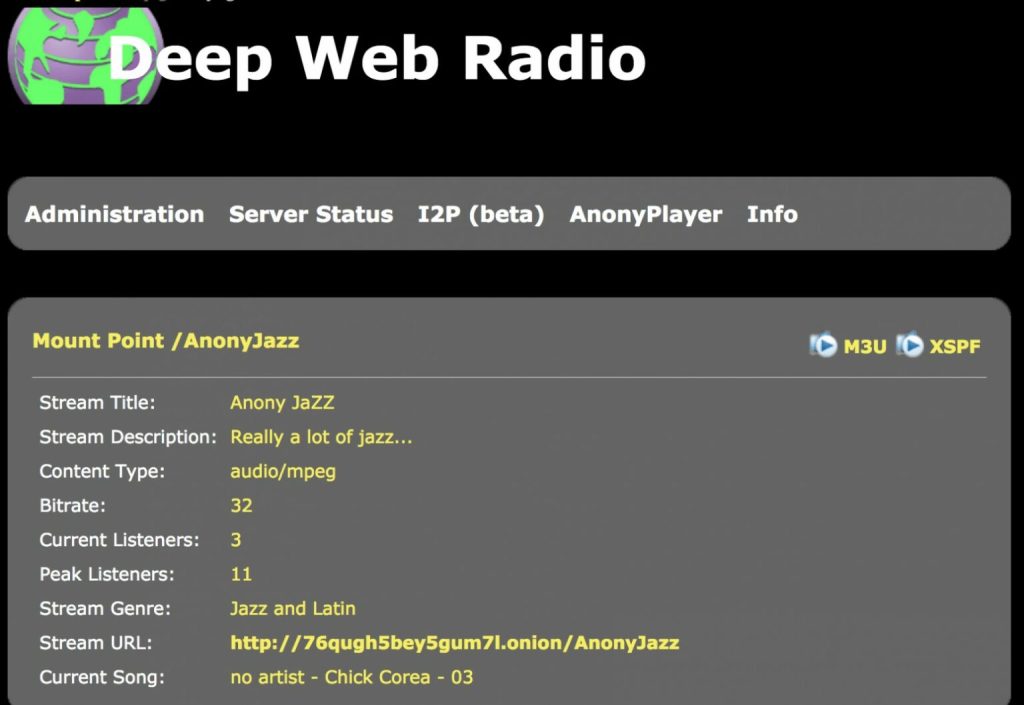
- Direct URL: http://76qugh5bey5gum7l.onion/
Deep Web Radio is a dark web streaming platform that broadcasts different music genres 24/7. You can tune in anonymously and even contribute playlists, offering a rare sense of community within the dark web space.
25. Mailpile
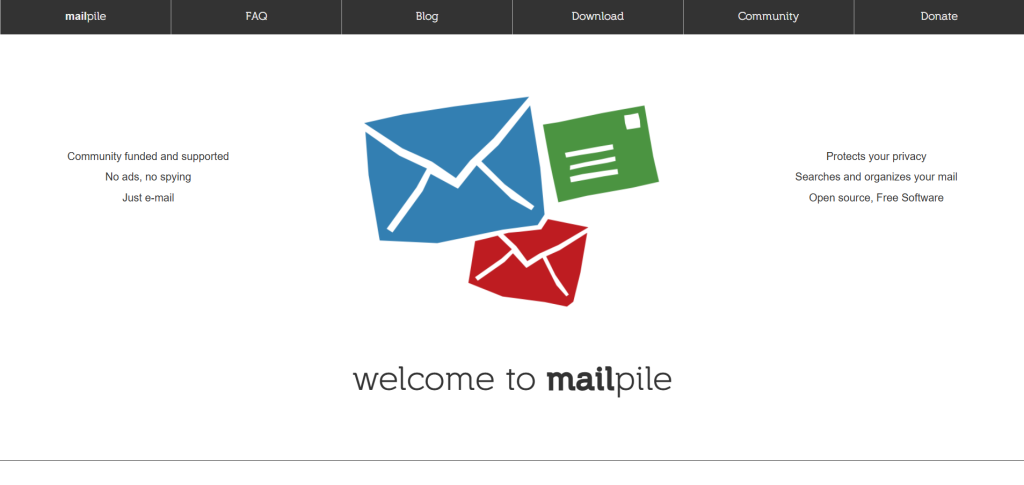
- Direct URL: http://clgs64523yi2bkhz.onion/
Mailpile is an open-source email client that keeps emails completely private. It lets you store, search, and encrypt your emails locally on your device.
The service’s dark web interface provides a safer way to handle your email without relying on centralized servers that could expose your data.
26. Keybase
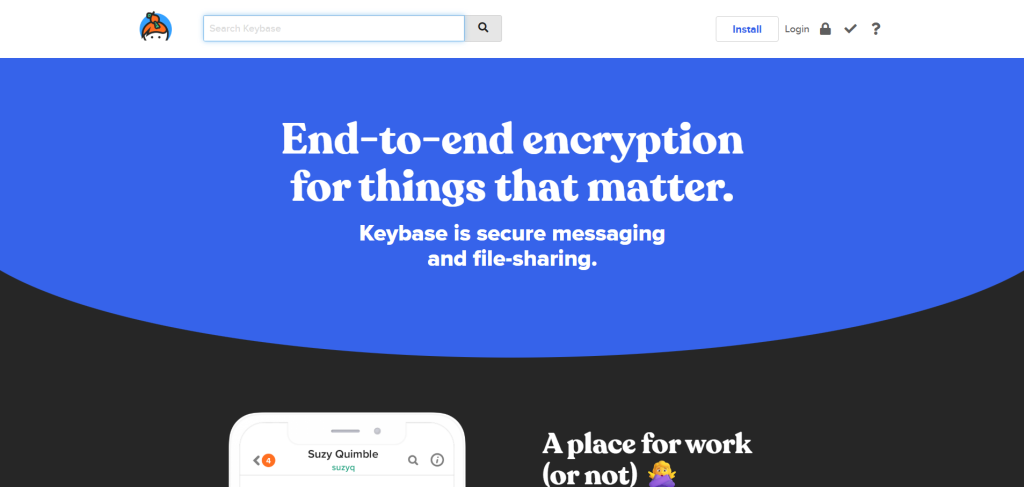
- Direct URL: http://fncuwbiisyh6ak3i.onion/
Keybase is a secure communication and identity verification platform that supports encrypted chat and file sharing. The site is available on both the surface and dark web.
It allows users to prove their identities using cryptographic keys and connect across multiple online services without revealing their personal data.
27. Elude
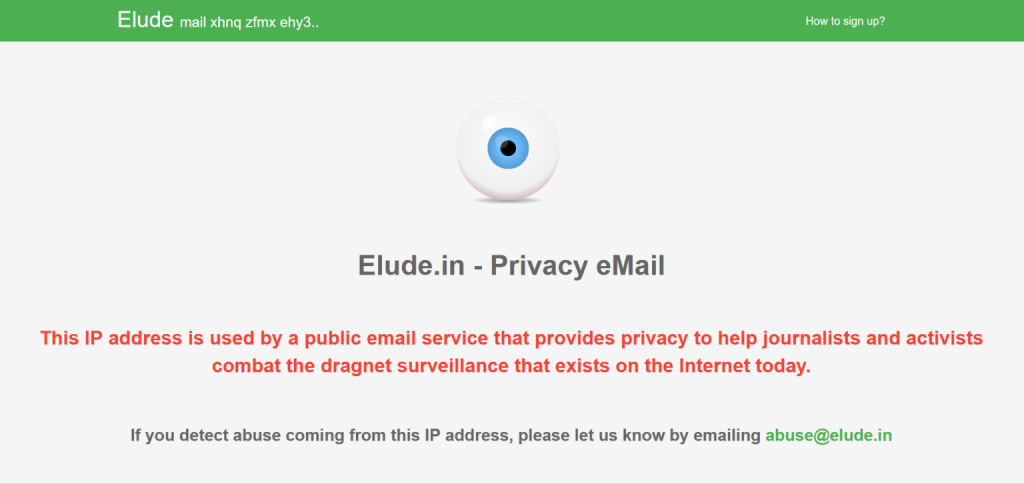
- Direct URL: http://eludemaillhqfkh5.onion/
Elude is a privacy-first email provider designed for anonymous communication. It doesn’t require personal information during registration or log IP addresses.
The service provides secure, encrypted exchanges between users, making it a good option if you want to separate your communication from public email systems.
28. Tunnels

- Direct URL: http://62gs2n5ydnyffzfy.onion/ | http://74ypjqjwf6oejmax.onion
This is a private chat platform on the dark web that focuses on anonymity. It uses layered encryption to protect user identities and communication content. Tunnels is ideal for those who want secure, private conversations online.
29. Onion.name

- Direct URL: http://onionamev33r7w4zckyttobq3vrt725iuyr6xessihxifhxrhupixqad.onion/
Onion.name is a Tor gateway that allows you to access .onion sites from a regular browser without installing Tor.
Although convenient, it’s untrustworthy because it routes traffic through third-party servers, so you should use it only to access low-risk sites (if you must).
30. Dark.fail
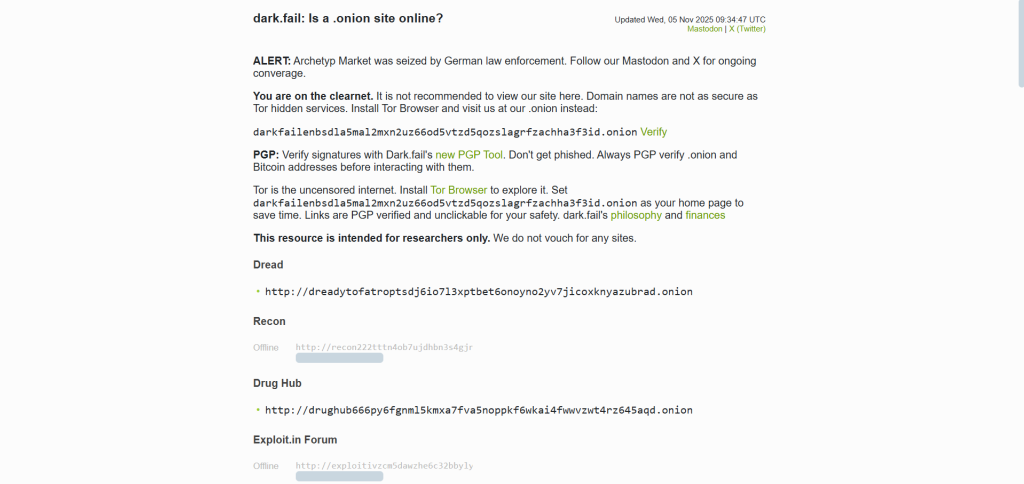
- Direct URL: http://darkfailenbsdla5mal2mxn2uz66od5vtzd5qozslagrfzachha3f3id.onion/
Dark.fail is a directory that lists verified links to active and trustworthy dark websites that Google won’t let users find. It’s useful for avoiding phishing clones and scams, which are widespread on the dark web. The site constantly updates links and status checks to guide users to legitimate destinations.
Interestingly, when Tor upgraded its network in 2020 (from V2 to V3), dark.fail was quick to adopt the new, more secure onion links. With that move, it proactively protected its users from older vulnerabilities that could have exposed their location or allowed their favorite sites to be blocked (which is why the platform has earned so much trust).
That said, nothing in the world, especially on the dark web, is 100% safe. There are some downsides and limitations you must keep in mind. The website was subject to domain phishing in the past and runs on a centralized platform. It is essential to verify the links posted on it before you visit any, always.
31. Haystak
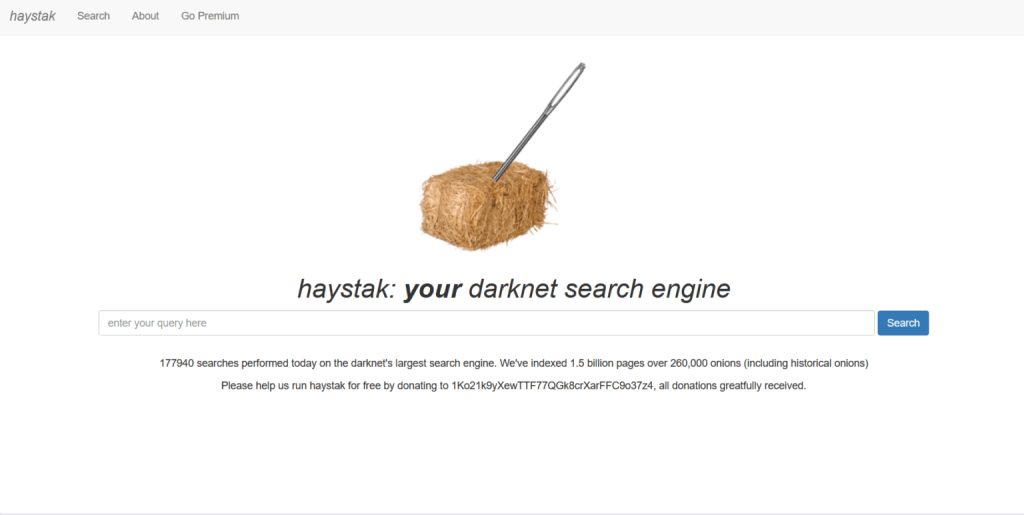
- Direct URL: http://haystak5njsmn2hqkewecpaxetahtwhsbsa64jom2k22z5afxhnpxfid.onion/
Haystak is a dark web search engine that helps find .onion platforms easily. The platform claims not to index or contain harmful content. While it’s not as big as regular clearnet search engines such as Google or Bing, Haystak has more than 1.5 billion pages and 260,000 onion URLs indexed. Moreover, it has clean, categorized results for research, forums, privacy tools, and file-sharing.
What is the Dark Web and How Does It Work?
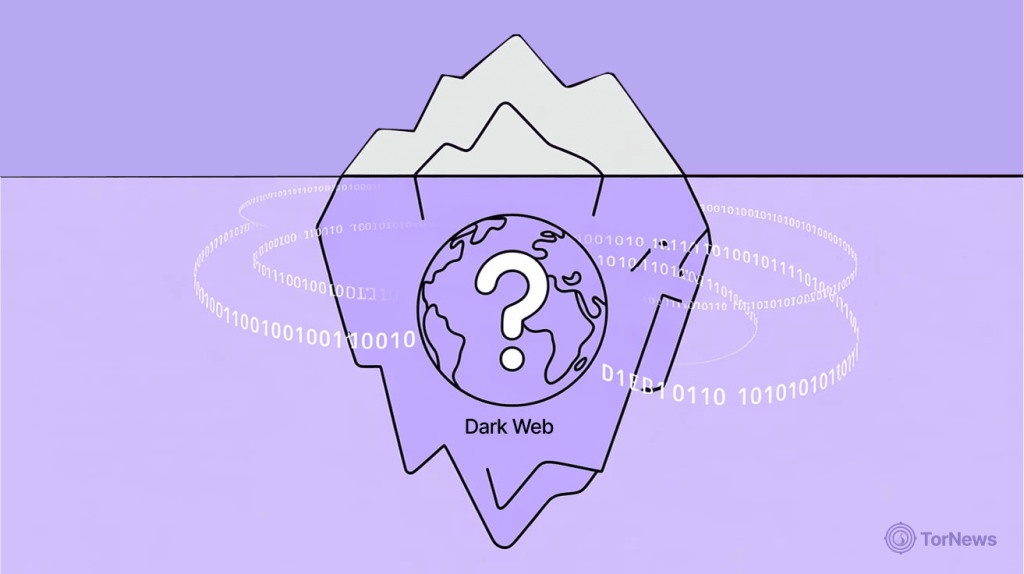
The dark web is a section of the internet that standard search engines like Google, Bing, or Yahoo don’t (or we rather say can’t) index. You need special software like the Freenet or Tor browser, which uses onion routing to encrypt data across multiple nodes. The technology that enabled the dark web first emerged in the 1990s from U.S. military research, aimed at protecting government communications. This hidden layer is often conflated with the much broader deep web, which we’ll clarify next.
Dark Web vs Deep Web: What’s the Difference?
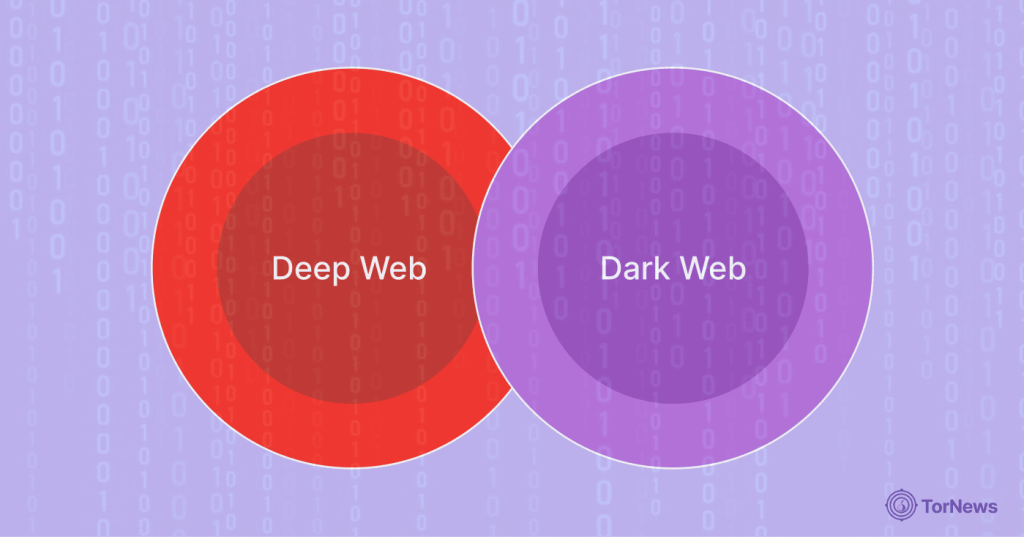
Clarifying the key differences between the dark web and other parts of the internet is essential. People often confuse the deep web with the dark web, but they’re not the same.
The deep web is the part of the internet that traditional search engines don’t index, consisting of private web content like your email, online banking, and password-protected social profiles. Essentially, any content behind a login or stored in a private database is in the deep web, which makes up roughly 90% of all websites.
On the other hand, the dark web is a smaller, intentionally hidden part of the deep web that requires special software or configuration, like the Tor browser, to access. It relies on a technology called onion routing to keep users anonymous.
The deep web is simply unindexed, while the dark web is deliberately hidden and encrypted to protect users and site owners, making it a haven for both legitimate and illicit activities.
So, the deep web is largely ordinary and safe, but the dark web hosts the .onion sites where anonymity is essential.
Types of Dark Web Sites
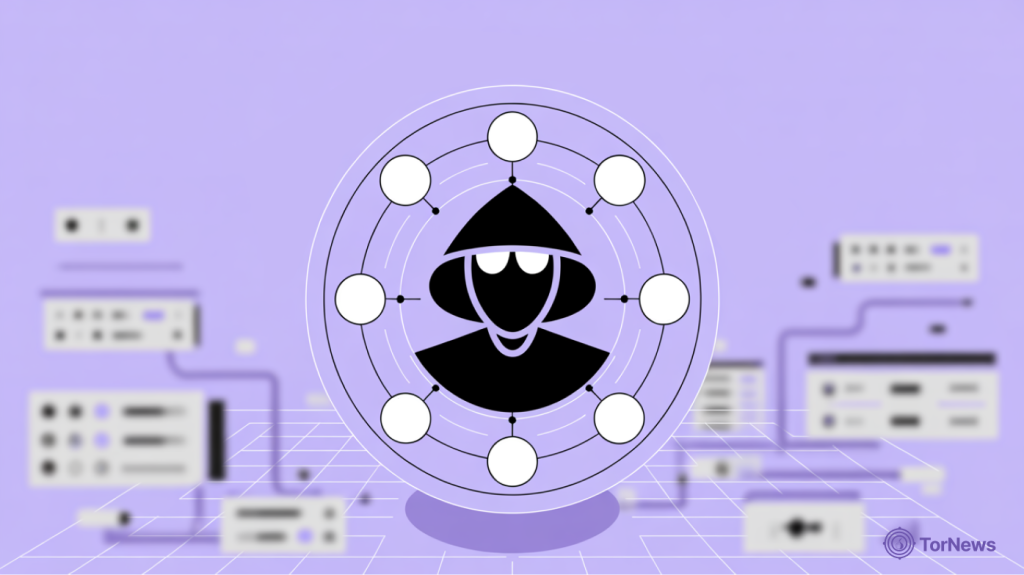
The variety of platforms and services reflects the diverse reasons people use the dark web. Here are some of the main categories of dark web websites:
- Forums and communities: Numerous forums are available on the dark web that host discussions on everything from privacy and hacking to cryptocurrency and leaked data. However, unlike clearnet forums such as Reddit or Quora, many of these forums require invitations and account approval before joining in an effort to filter out spam, scams, and law enforcement surveillance.
- Marketplaces: The dark web hosts many marketplaces that resemble conventional e-commerce sites. They offer almost everything from legal products like privacy tools to illegal ones like stolen data. Monitoring these markets is a core function of dark web intelligence that allows organizations to identify compromised data, early threat detection, and to respond to potential breaches proactively (before they cause damage). Staying on top of which markets are active and reputable is a constant challenge. We track this closely in our updated list of the top 13 dark web markets today.
- Mirrors of legitimate websites: Mirrors copy content from mainstream resources and host it on onion domains for privacy or censorship resistance. Some mirrors are legitimate and operated by the original organizations, while others are unofficial and may deliver modified or malicious content.
- Whistleblower platforms: Whistleblower platforms allow insiders to submit documents or tips to journalists and NGOs anonymously. They use strong upload controls and encryption to protect sources and limit traceability.
- Ransomware leak sites: Ransomware leak portals publish data stolen during attacks to pressure victims into paying. They list victims, post samples, and sometimes provide proof-of-theft to coerce payment. Visiting them can expose you to illegal material and security risks, so avoid downloading anything.
How to Access the Dark Web Safely
The following is a summary of critical safety practices. For a detailed, step-by-step protocol covering everything from setup to safe browsing habits, be sure to read our full guide on how to browse the dark web safely.
1. Use Trusted Software
You cannot access the hidden web without the Tor browser. So, start by installing it from the official website of the Tor Project (https://www.torproject.org). It’s free, open-source software, specifically designed to protect user anonymity through layered encryption. For a detailed breakdown of your options, check out our guide to the top 10 best dark web browsers today.
You don’t need to be tech-savvy or advanced setup to start using Tor. It works like a normal browser but routes traffic through multiple encrypted nodes.
Keep in mind that anonymity tools only work when properly used. Using outdated or tampered software can expose your identity or device to risk.
For a complete beginner’s walkthrough that covers safety, setup, and mindset, our dark web 101 guide is the best place to start.
2. Use a VPN
Always connect to a VPN before launching Tor. It encrypts your connection and hides your IP address from third parties, adding an extra layer of security. The VPN also prevents anyone monitoring your traffic from seeing that you’re using Tor.
However, choose a reliable, no-log Tor VPN. Avoid free VPNs as they often collect user data and leak information.
3. Keep Your System Secure
Before accessing the dark web, update your operating system, Tor browser, and antivirus software. Outdated software can have vulnerabilities that attackers exploit. You also use a reliable antivirus program like TotalAV to block harmful downloads or scripts.
4. Avoid Personal Exposure
Never share personal information such as your name, email, or phone number on the dark web, as it can quickly become data on the dark web for sale (leading to identity theft and scams). The dark web hosts both legitimate and malicious users, and identity leaks can lead to scams or blackmail. Also, avoid logging into any personal email, bank account, or social media while browsing the dark web.
5. Stick to Verified .Onion Links
Only use trusted directories or verified sources when visiting Tor sites. Reputable platforms like SecureDrop and ProPublica publish official .onion domains for safe access. Avoid clicking on random links shared on social media, chat apps, or marketing platforms.
Other Ways to Access Dark Web Links
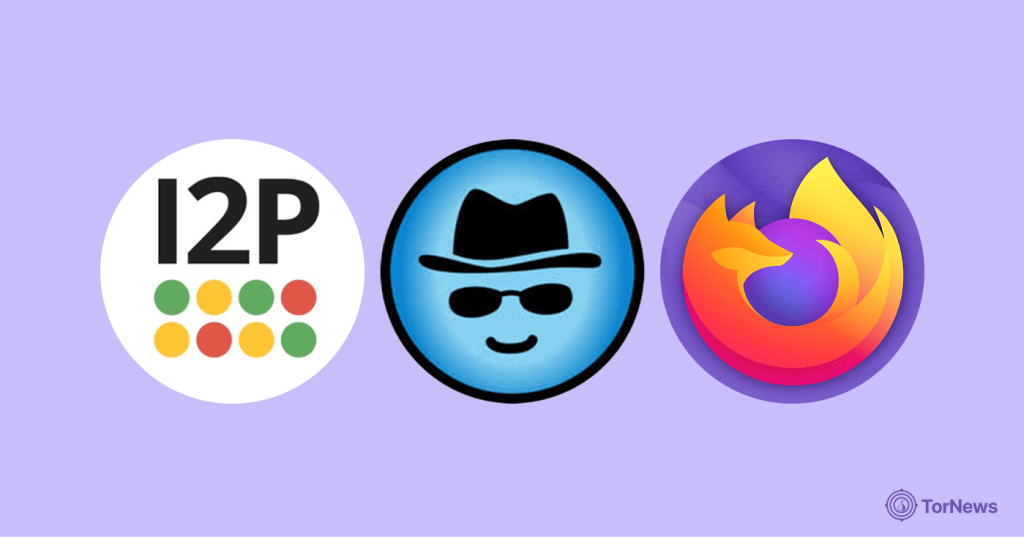
Most people rely on the Tor browser to access .onion links, which is relatively secure. You can even boost Tor security by disabling JavaScript in Tor, switching to the ‘Safest’ mode, and verifying each .onion URLs before accessing.
Still, if you’re more cautious about your security, you can try out these advanced tools.
1. Invisible Internet Project (I2P)
Invisible Internet Project (I2P) is an anonymizing overlay network that routes traffic through peer nodes and hosts its own hidden services. It uses different addressing and protocols than Tor, so .onion sites usually won’t work on I2P.
This platform is ideal for peer-to-peer services, anonymous publishing, and apps that need persistent, distributed hosting. Unlike Tor, it relies on peer-to-peer connections, and you must install the I2P client to access it.
2. Whonix
Whonix is a privacy-focused OS design that splits your system into two virtual machines: one routes all traffic through Tor (gateway) and the other runs your apps (workstation). This reduces the risk that a compromised app leaks your real IP.
You can execute Whonix inside a hypervisor (VM) and keep the workstation anonymous by design. It helps if you want stronger compartmentalization than you get on a single browser.
3. Mozilla Firefox
Mozilla Firefox can access Tor if you configure it to use a Tor SOCKS proxy, but it’s not built for Tor’s threat model.
So, using Firefox directly risks leaking identifying data through extensions, plugins, or active content unless you harden and lock it down. Here is how to do it.
- Open the Firefox app.
- Enter ‘about:config’ in the address bar section.
- Navigate to ‘network.dns.blockDotOnion’.
- Change the setting to ‘False’.
- Restart the app.
Also, enable the NoScript and HTTPS Everywhere plugins for Firefox before exploring the dark web with the browser.
4. Subgraph OS
Subgraph OS is a hardened Linux distribution for secure, anonymous communication. It integrates robust sandboxing and routes traffic through Tor by default.
The operating system is ideal for journalists, activists, and researchers who need system-level protection beyond a standard browser. However, like other specialized operating systems, it requires technical skill to use safely and to maintain updates and compatibility.
How to Find New, Active Dark Web Links
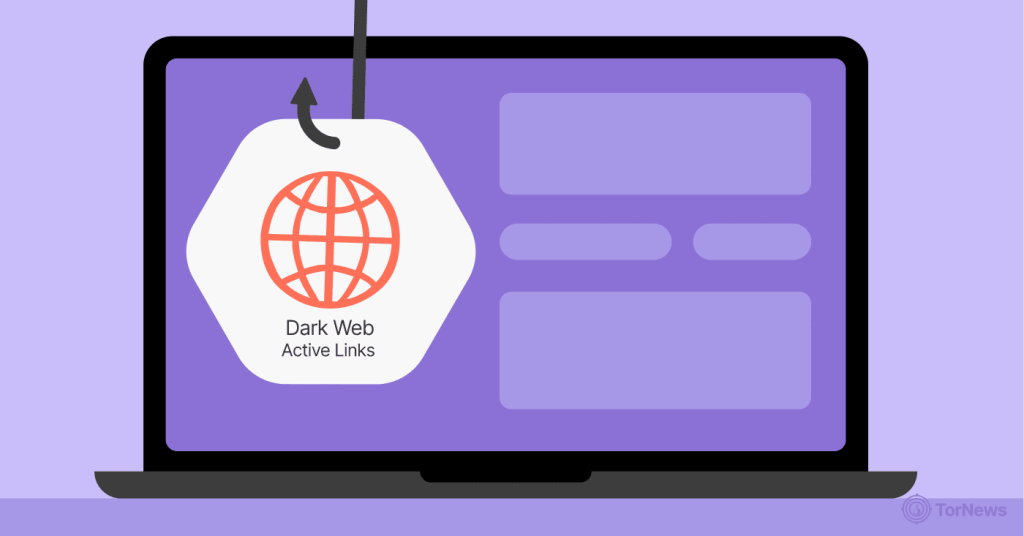
Unfortunately (or rather fortunately), dark web services have a short lifespan. They often change addresses to dodge DDoS attacks and law enforcement tracking.
So, it’s difficult to determine when a popular .onion site is going to disappear or go offline. While the above list helps, it isn’t enough, as they quickly become outdated (we try to keep ours as current as possible).
The best approach is to learn how to find new and active links yourself. Below are a few methods you can try.
1. Trusted Directories and Forums (Avoid Hidden Wiki)
Although the Hidden Wiki is well-known, it’s unreliable since it lists some illegal or unsafe links. So, you should explore safer alternatives.
Daniel was one of the safest and most organized dark web portals. Though it’s no longer active, it set the benchmark for future .onion directories. To find its current versions, search for terms like ‘Daniel replacement’.
Another example is Dread, widely known as the “Reddit of the Dark Web”. This is a community space where users post reviews, discuss new markets, share onion links, and exchange information.
However, you need a working link to access it, which you can find on the clearnet privacy forums if you are lucky.
2. Search Engines
The dark web has its own search engines, just like the surface web. While they do work, they often return irrelevant or spam-filled results.
For example, you can try DuckDuckGo’s .onion version, though it has a limited selection of dark web resources. Other alternatives include NotEvil, Ahmia, OnionFind, and Torch, which list .onion links.
However, you’ll need to use specific keywords when searching on these dark web search engines. Also, be patient, as most results are junk. These engines are useful if you know exactly what you want, not for casual browsing.
3. Verified Social Media Channels and News Sites
Finally, you can check out reputable websites and news outlets like SecureDrop and ProPublica for verified .onion domain addresses. Also, people share reputable dark web links to explore on encrypted apps like Telegram or Keybase.
Note: Don’t trust a single source for onion websites, especially if it’s from marketers. Avoid clicking on a new link right away. First, verify it from at least two reliable sources before opening it to protect your account and funds.
The Legality of Accessing the Dark Web
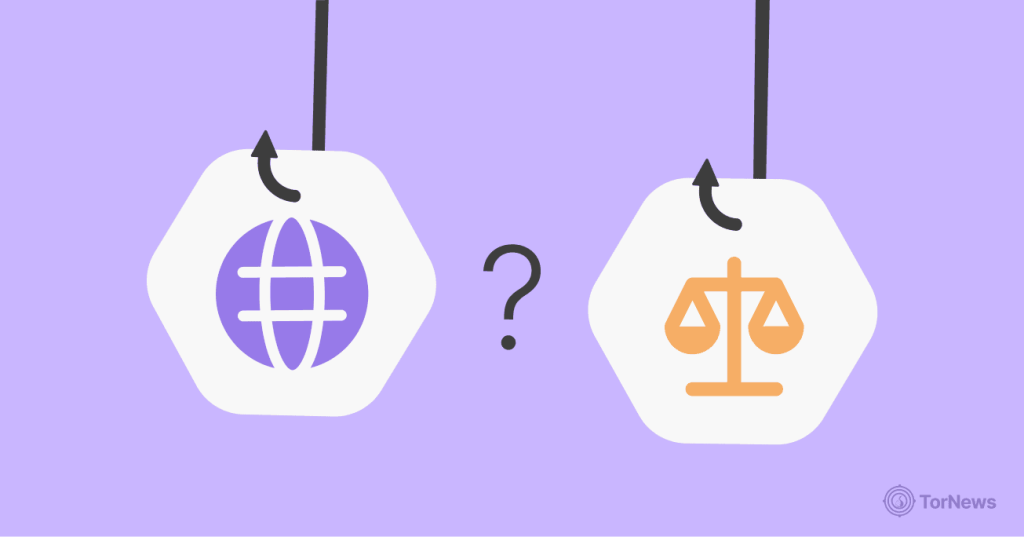
Accessing the dark web is legal in most countries worldwide. In fact, it has many benefits. Key reasons to use the dark web legally include stronger privacy, evading censorship, and accessing uncensored news or academic research.
Its anonymity makes the dark web ideal for people whose safety could be at risk if their identity were exposed. They include whistleblowers, journalists, activists, abuse and persecution victims, and politicians.
However, remember that the same dark web also attracts criminals who steal identities or spread malware.
Activities on the dark web span a wide legal spectrum. Essentially, the legality of using the dark web depends on what you do there. For example, activities that violate others’ rights or safety can get you into serious trouble.
Is It Illegal to Use the Tor Network?
Using anonymized browsers like Tor and I2P is completely legal as they’re not exclusively limited to the dark web. For instance, you can use the Tor browser for regular browsing and private access to deeper parts of the internet.
As online privacy concerns grow, Tor’s anonymity is becoming essential. It helps to prevent third parties from monitoring your online activities. In countries with strict censorship, users often rely on a VPN or the Tor browser to access the surface web.
However, remember that engaging in illegal activities can still incriminate you, even if you’re using the The Onion Router browser. For example, you shouldn’t engage in terrorism, pirate copyrighted material, or share illegal pornography. The anonymized browser won’t protect you if you do such things online, and you keep wondering if it is illegal to visit dark web destinations.
Is It Illegal to Access and Use Dark Web Sites?
Visiting the dark web raises suspicion, as the dark web is often associated with secretive or private intentions.
Activists, journalists, and others handling sensitive work choose to remain anonymous for personal safety. Victims of crime may also want to protect their identities to avoid being found by their perpetrators.
Nonetheless, don’t assume that the dark web will hide your illegal actions – you will still get caught. This leads to a common question: Can police track you on the dark web? The answer is yes. While Tor provides strong anonymity, it’s not foolproof (like any other technology today). Law enforcement agencies use advanced techniques and conduct complex investigations to de-anonymize targets on the darknet. They actively monitor it and have successfully shut down major marketplaces and arrested their owners and users.
Tor’s anonymity has a downside – it also attracts malicious actors who thrive in the dark. For instance, traffickers and hackers use the dark web to conceal their bad activities.
Overall, accessing the dark web isn’t illegal, but it can still cause problems. Without proper precautions, you risk exposure to scams and other dangers.
How to Use Tor With a VPN
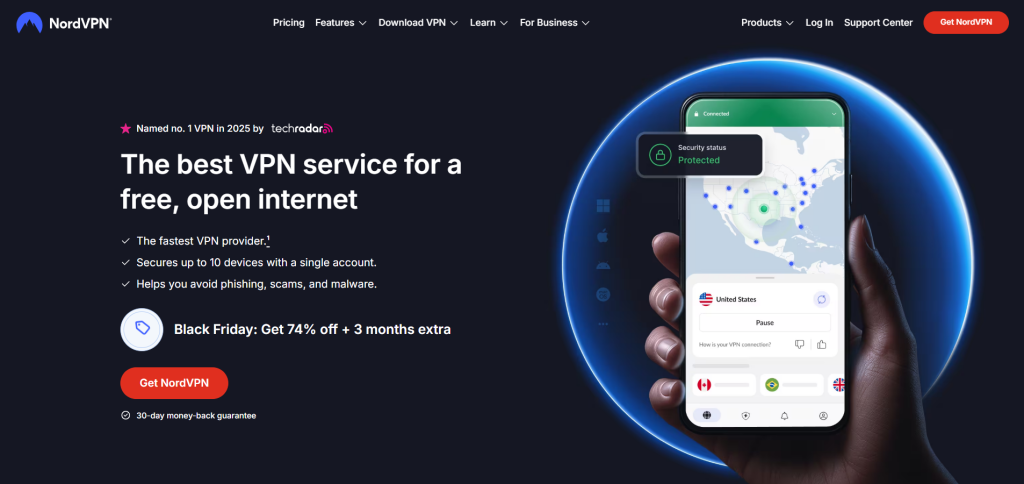
- Select a reliable VPN provider. We recommend NordVPN because of its strong security, fast speeds, and wide server coverage.
- Visit the official website to download the VPN app.
- Install and run the app on your device.
- Connect to your preferred server location.
- Explore the dark web safely and anonymously.
Note: Important considerations
- Use a trustworthy VPN. A VPN adds another layer of encryption to your web traffic, but also introduces another entity that could potentially collect data. That’s why you should always use a trustworthy, no-logs VPN to stay safe when accessing the dark web.
- Configuration is essential. Tor-over-VPN (VPN then Tor browser) is the ideal configuration as it conceals Tor usage from your ISP. The other option, VPN-over-Tor (Tor browser then VPN), is less secure.
- Not foolproof. Avoid illicit activity regardless of the anonymity tools you have. A VPN doesn’t make crimes legal – it only encrypts your traffic and hides Tor use from your ISP.
FAQs
It’s safe to say so. But not all these websites are dangerous. Nevertheless, some host scams, malware, or illegal content. Many are safe and focus on privacy or free speech. To stay safe, use trusted links and avoid sharing your personal information.
By a significant margin, it’s the sale of illicit goods and services on darknet markets (like the ones mentioned in this article). That includes banned drugs, stolen data and credentials, counterfeit documents, and hacking tools. While other crimes like fraud and illicit finance are prevalent, the marketplace economy is the dark web’s dominant engine of criminal activity.
Yes, absolutely—and it’s simpler than you might think. All you really need is the Tor browser and a list of .onion addresses to get started. This article alone gives you over thirty sites and services to explore. You can also use a trusted dark web search engine and other similar sources to discover more onion pages on your own.
No. Even though DuckDuckGo is a privacy-conscious browser, it doesn’t index onion URLs. To access dark websites, you’ll need a dark web search engine like OnionFind, Ahmia, or Torch.
Yes, there are search engines specifically for the dark web that index .onion sites. Examples include Ahmia, OnionFind, Torch, and Not Evil, though results can be limited or outdated.
The dark web originated from research by the U.S. Naval Research Laboratory in the 1990s. They developed The Onion Router to facilitate anonymous communication for intelligence and military purposes. Over time, the technology became public, and people began using it to create private networks and hidden sites.
No, you are not, as you can still be tracked on the dark web. While Tor hides your IP and location, mistakes like revealing your personal information, using unsafe links, or running scripts can expose your identity.
No. Deep web sites are simply unindexed private pages (like your email), while dark web sites are deliberately hidden services requiring special software like Tor.
What happened to Smartmixer.io?
It was a cryptocurrency mixing service that helped anonymize Bitcoin transactions by breaking and redistributing them through different wallets. Smartmixer made it harder to trace funds on the blockchain, although malicious actors could misuse such tools for illegal transfers. In recent years, law enforcement has shut down services like Smartmixer and is now intensively pressuring the remaining operations.
Hidden Answers was the dark web’s version of Reddit or Quora (a forum on the deep web), where you could ask anything without getting censored. While it was a forum where users asked questions privately, you could see a lot of marketplace banner ads on it, as that’s a common method of monetization on such community-based Tor websites. The well-known question-and-answer portal is now defunct.


